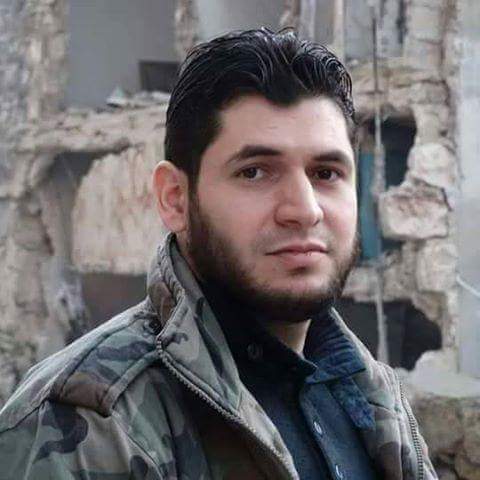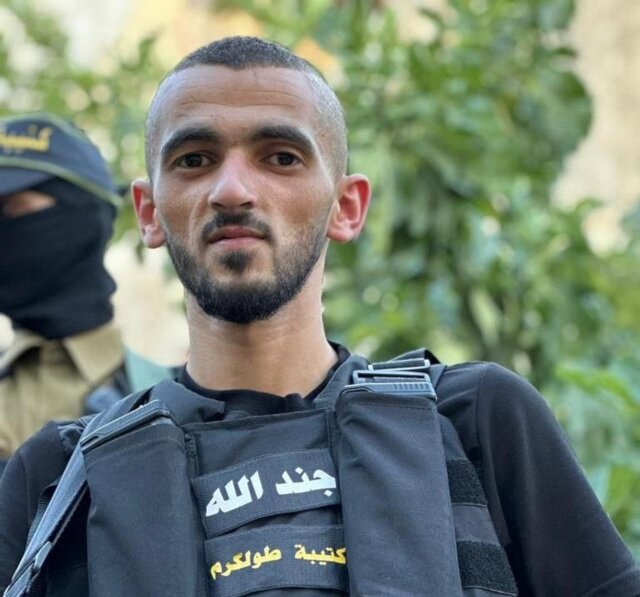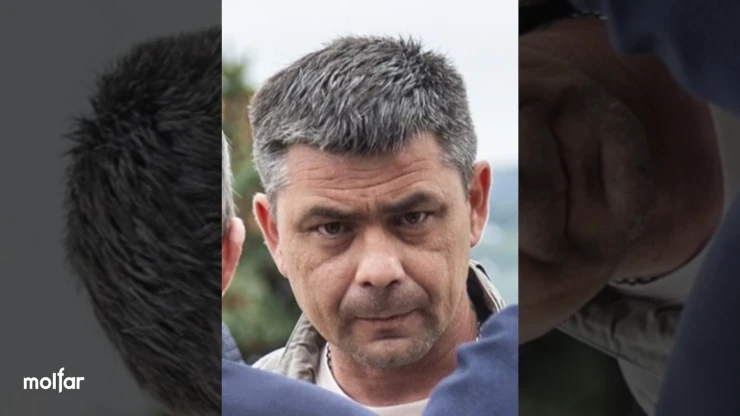
July 2015 Briefs
July 2015 Briefs
ALEPPAN FOLK HERO MUHANNA JAFFALA LEADS KATA’IB ABU AMARA DESPITE ASSASSINATION ATTEMPT
Nicholas A. Heras
On July 2, several of the most influential militant Salafist and Islamist rebel organizations in the region of Aleppo in northwestern Syria, among them the important Aleppo city-based rebel organization Kata’ib Abu Amara, announced the creation of al-Ghurfat al-Amaliyyat Ansar al-Shari’a (Operations Room of the Partisans of Shari’a) (YouTube, July 2). Muhanna Jaffala (a.k.a. Abu Bakri) is the general commander of Kata’ib Abu Amara. On June 7, an explosive planted in Jafaala’s car parked in Aleppo nearly succeeded in assassinating him: it wounded him so severely that both of his legs were amputated below the knees and three of his fingers were severed. The injuries forced him to convalesce for a month in a Turkish hospital (Orient News [Dubai], June 10; Etilaf [Aleppo], June 8; Syria Mubasher [Aleppo], June 7). Although an interim commander for Kata’ib Abu Amara was named in his absence, Jaffala sent updates on his condition to his group’s fighters from his Turkish hospital, and upon his return in mid-July to Aleppo for an iftar dinner, which breaks the day’s fast during the Muslim holy month of Ramadan, with his group’s fighters, he was greeted with great fanfare by his organization, which continued to refer to him as its commander (Siraj Press [Aleppo], July 14; YouTube, July 7; YouTube, June 12; Step Agency News [Aleppo], June 12). It is expected that Jaffala will resume his overall leadership over Kata’ib Abu Amara, even if he is no longer able to serve as the military commander of the organization, or directly participate in its battles against Bashar al-Assad’s government. [1]
Jaffala, a 31-year-old Aleppo native, was an economics student at Aleppo University when the Syrian revolution began, and he reportedly was an early and active participant in the demonstrations against the government at the university throughout 2011 (YouTube, October 26, 2013; YouTube, March 18, 2013). He is believed to have begun networking with the nascent armed opposition movement, initially based in Aleppo’s northern suburbs, in the middle of 2011; he asserts that he took up arms in order to protect the civilians rebelling against the al-Assad government from the Syrian security forces and its paramilitaries. (Syria Mubasher [Aleppo], June 7; Sooria al-Yoom [Aleppo], February 24; YouTube, October 26, 2013; YouTube, March 18, 2013; YouTube, February 26, 2013).
In 2012, Jaffala announced the formation of Kata’ib Abu Amara in the Salah al-Din district of Aleppo, and his organization is believed to have been one of the first armed opposition groups in the city (Arabi 21 [Aleppo], June 8; All4Syria [Aleppo], August 13, 2014; YouTube, March 3, 2013; YouTube, February 26, 2013). Jafalla and most of the rank-and-file of Kata’ib Abu Amara are generally considered to espouse a socially conservative Islamist ideological orientation, while some of its neighborhood affiliate groups are ideologically closer to the militant Salafism of al-Qaeda Syrian affiliate Jabhat al-Nusra. [2] Jaffala has tried to keep his organization generally neutral in the intra-rebel conflict between the Islamic State and other armed opposition groups, while decrying the former’s attacks against the latter as both apostasy for spilling Muslim blood and as an act that helps strengthen the position of the al-Assad government (Arabi 21 [Aleppo], June 8; Syria Mubasher [Aleppo], June 7; El-Dorar al-Shamiya [Beirut], June 2; Sada al-Sham [Aleppo], August 9, 2014).
Structurally, Kata’ib Abu Amara is considered to be an umbrella organization of local neighborhood level armed opposition militias that is particularly active inside the city of Aleppo. [3] It also maintains three “rapid reaction” battalions, under Jaffala’s command, that can be deployed to assist allied rebel groups when they are in need of reinforcement (Sada al-Sham [Aleppo], August 9, 2014). The entire organization, including its constituent neighborhood-level militias that joined the group after its founding, is believed to number less than 1,000 fighters. [4] A branch of Kata’ib Abu Amara, Suriyat Abu Amara li-Mahaam al-Khasa (Clandestine Abu Amara for Special Tasks), focuses on targeted attacks against high-ranking or important Syrian military, security and intelligence officers and the officers of Syrian loyalist militia forces as well as officers of Iranian Revolutionary Guard Corps (IRGC) supported groups in regime-controlled areas of Aleppo (El-Dorar al-Shamiya [Beirut], June 24; All4Syria [Aleppo], March 24; YouTube, November 14, 2013; All4Syria [Aleppo], August 13, 2014; YouTube, March 15, 2014; YouTube, January 20, 2014). Jaffala states that the intelligence for Suriyat Abu Amara attacks comes from his group’s network of rebel sympathizers living in regime-held areas of Aleppo city (Sada al-Sham [Aleppo], August 9, 2014; YouTube, March 27, 2014). Following the nearly successful assassination attempt against him, the clandestine branch blamed the al-Assad government and announced operation “Al-Wa’ad al-Sadiq” (Sincere Promise), a revenge assassination campaign against the Syrian military and its paramilitary forces that has already killed several officers, including a Lebanese commander of the Aleppo affiliate of the IRGC-backed Liwa Abu Fadhal al-Abbas group (El-Dorar al-Shamiya [Beirut], June 24; Smart News Agency [Aleppo], June 18; All4Syria [Aleppo], June 12; Etilaf [Aleppo], June 8; Syria News Desk [Aleppo], June 8).
Jaffala’s journey from being a student to becoming an active and locally-important rebel commander who leads enthusiastically from the front lines has made him a folk hero for some Aleppans, and his personal history and zeal for the revolution has also been highlighted in Arab media profiles of him (YouTube, June 16; Halab News Network [Aleppo], June 8; YouTube, March 18, 2013). [5] However, Jaffala’s organization has also attracted controversy. Affiliates of Kata’ib Abu Amara have reportedly intimidated and harassed secular members of the Syrian opposition, publicly called for the institution of a caliphate in demonstrations with Jabhat al-Nusra, executed an allegedly homosexual Syrian man and engaged in turf battles with other local neighborhood-level Syrian rebel groups (All4Syria [Aleppo], April 8; Enab Baladi [Aleppo], April 3; Syrian Observatory for Human Rights [Aleppo], March 3; al-Asema [Aleppo], January 18).
In spite of its size, Kata’ib Abu Amara continues to be an active participant in Syrian Islamist rebel joint operations, such as the Ansar al-Shari’a Operations Room, the Fateh Halab (Conquest of Aleppo) campaign led by Faylaq al-Sham’s Aleppo commander Major Yassir Abd al-Rahim (YouTube, July 7; YouTube, July 2; YouTube, April 26; for more on Major Yasir Abd al-Rahim, see MLM Briefs, March 2015). Jaffala is one of the most noteworthy leaders of the rebellion in Aleppo, and despite his injuries, will likely continue to wield great influence over the course of the fighting in that city. His story is also emblematic of the general ideological turn of many Sunni members of the Syrian revolutionary movement, from one of protest against the al-Assad regime due to long-standing economic and political grievances, to armed jihad by a majority Sunni—and increasingly militant Islamist—rebel army, against an oppressive regime. Reconciling Islamist Syrian rebels commanders like Jaffala, and the rank-and-file of groups such as Kata’ib Abu Amara, will be crucial to a potential post-conflict security structure in Syria.
Notes
1. Author’s Skype interviews with Syrian activists from the city of Aleppo districts of Sheih Maqsud and Salah al-Din with knowledge of Kata’ib Abu Amara, July 18 and July 17, 2015.
2. Ibid. Author’s interviews with Syrian activists from the city of Aleppo and the Aleppo governorate, in Gaziantep, Turkey, April 30-May 2, 2014; January 17-19, 2014.
3. Ibid.
4. Ibid.
5. Ibid.
THE LIBYAN NATIONAL ARMY’S RISING STAR IN THE EAST: FARAJ AL-BARASSI
Nicholas A. Heras
The Libyan National Army and its militia network under the overall command of General Khalifa Haftar, which supports the House of Representatives-led government based in the city of Tobruk in Libya’s eastern Cyrenaica Governorate, is currently conducting a military campaign against the Islamic State near Benghazi in that province (Journal al-Yoom [Benghazi], July 24). Colonel Faraj al-Barassi is the Libyan National Army’s commander for the Jabal al-Akhdar region of Cyrenaica, which borders Benghazi, and is responsible for its operations against Islamic State forces in this area (al-Youm al-Sabaa [al-Bayda], June 18; al-Karama Press [Benghazi], June 14; YouTube, June 13).
A native of Libya’s fourth-largest city of al-Bayda and a career military officer, Colonel al-Barassi is also member of the Barasa, a large and locally powerful Cyrenaican tribe, which provides him with a personal social base of support and is powerful in and around al-Bayda and the greater Jabal al-Akhdar area (al-Jazeera, June 22). Prior to the Libyan Revolution, Mu’ammar Qaddafi appointed him to be the Secretary of the People’s Committee for Jabal al-Akhdar, and following the start of protests against the Qaddafi government in al-Bayda on February 16, 2011, al-Barassi was assigned command of the brigade of the Libyan Army tasked with quelling protests in the area (Libya Net [al-Bayda], January 19; al-Sharq al-Awsat, February 18, 2011).
Al-Bayda fell out of Qaddafi’s control early in the revolution, and by February 23, 2011, al-Barassi had joined several other Libyan military officers and their forces garrisoned in eastern Cyrenaica province in defecting from the army (Der Spiegel [Hamburg], February 26, 2011; The Guardian [London], February 23, 2011). After the fall of Qaddafi’s government and his execution in 2011, al-Barassi continued commanding the brigade, which is part of the security forces stationed in and around al-Bayda city and the greater Jabal al-Akhdar area (al-Sakina [Shahat], May 31, 2014; al-Watan Voice [Gaza], May 19, 2014).
In the current Libyan civil war, the auxiliary armor and special forces brigades based in the Jabal al-Akhdar area are attached to Katiba Hassan al-Jawayfi and placed under the overall command of al-Barassi. He led Katiba Hassan al-Jawayfi into Haftar’s Operation Dignity, and became one of the commanders presiding over its campaign against forces aligned with the Libyan Dawn movement in Benghazi and Darna (Reuters, April 27; al-Sakina [Shahat], May 31, 2014; al-Watan Voice [Gaza], May 19, 2014). Katiba Hassan al-Jawayfi is reportedly the largest single branch of the Libyan National Army network in Cyrenaica, and as a result, al-Barassi is one of the most important Libyan National Army commanders fighting in one of the most strategic regions of the country (al-Libya al-Yoom [al-Bayda], January 7; al-Arabiya [Dubai], May 21, 2014). As a result, he has commanded several of the Libyan National Army’s more high-profile ground operations against its opponents in and around Benghazi and Derna (Reuters, February 5; al-Libya al-Yoom [al-Bayda], January 7; France 24, October 22, 2014; al-Hurra, October 22, 2014).
His position as the key security implementer in al-Bayda and the greater Jabal al-Akhdar area has generally benefitted the Libyan National Army, as al-Bayda has emerged as the most important Cyrenaica stronghold of the House of Representatives-led government in Tobruk (al-Jazeera, June 22; Christian Science Monitor, June 7; al-Hayat, March 1). Furthermore, al-Barassi conveys the image of an ardent anti-terrorist warrior mobilizing popular anger against the Libyan National Army’s opponents, and appears to have achieved a cult hero status among some locals for leading operations against groups such as the Islamic State, Ansar al-Shari’a and Fajr Libya (Libya Dawn) in the Benghazi and Derna areas (Facebook, February 25; YouTube, February 25; Libya News 24 [al-Bayda], February 23; al-Libya al-Yoom [al-Bayda], January 7). As a result, Ansar al-Shari’a, which has a strong presence in Benghazi, reportedly offered a 25,000 Libyan dinar ($18,300) reward to anyone who could assassinate al-Barassi (al-Bediah [Benghazi], April 10).
As the commander of several of the Libyan National Army’s operations more high-profile ground operations in Cyrenaica, al-Barassi has received increasing national attention in Libya, as well as criticism, including from General Haftar, on the conduct of these operations (Libya al-Mostakbal [al-Bayda], June 18; Libya Net [al-Bayda], January 19). [1] General Haftar’s attempts to relieve al-Barrasi from his command on charges ranging from corruption to overseeing operations that resulted in human rights violations, have been rebuffed by the popular support, including from the powerful Barassa tribal confederation, that al-Barrasi has marshalled in his area of operations (YouTube, June 23; YouTube, June 22; YouTube, June 15; Libya al-Akhbar [Benghazi], March 28; al-Shmaal al-Akhbariya [al-Bayda], March 23; Ayn Libya [al-Bayda], February 6).
The Libyan National Army depends on the cooperation of local commanders like Colonel al-Barassi to continue to function. His area of operations allows Haftar’s forces to apply pressure on Benghazi as al-Bayda has emerged as an important city for the Tobruk movement. This strategic position, and the strong tribal and military support that al-Barassi receives in a key core area of Cyrenaica, makes it difficult for the Libyan National Army to function without him in that region. His position is indicative of the complicated nature of post-revolutionary Libyan politics, where rival coalitions that have support on a national level, such as the House of Representatives and the Libyan National Army network that supports it, struggle to maintain the cohesiveness of their “national” goals while managing the local and/or regional goals of their constituent members.
Note
1. The Libyan National Army is accused of committing human rights violations in the course of its operations in the Benghazi area, such as indiscriminate and highly destructive and deadly attacks against civilian areas, and arresting and torturing opposing fighters and civilians living in opposing areas (Libya al-Akhbar [Benghazi], March 28; al-Shmaal al-Akhbariya [al-Bayda], March 23; Ayn Libya [al-Bayda], February 6; al-Jazeera, November 24, 2014).


